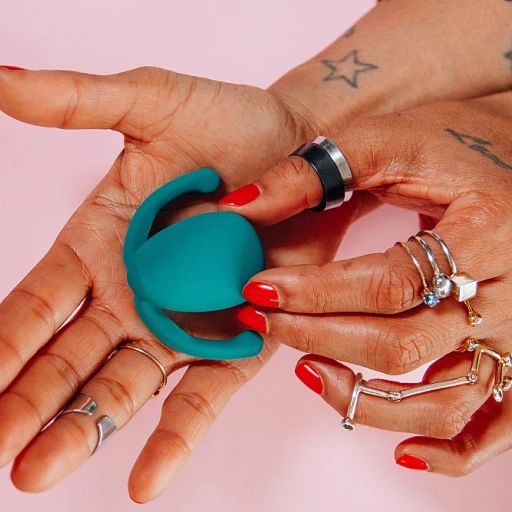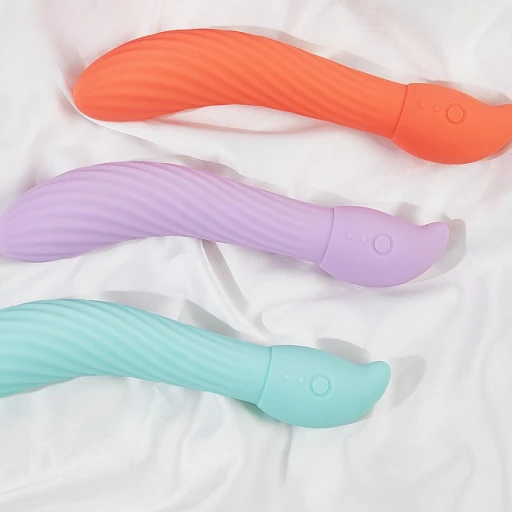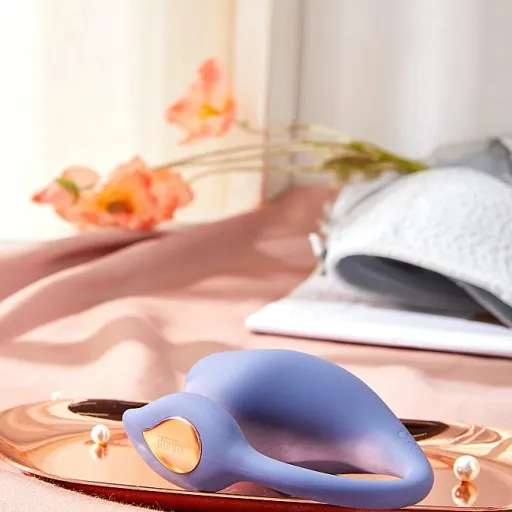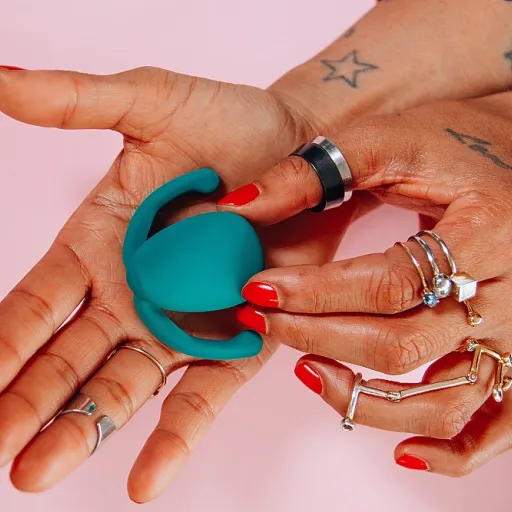
Understanding why homemade lubricant matters for cheap sex toys
Why Homemade Lubricant Makes Sense for Budget-Friendly Pleasure
When using cheap sex toys, finding the right personal lubricant can make a big difference in comfort and enjoyment. Many store bought lubes can be expensive, and some contain ingredients that may not be ideal for sensitive skin. Making your own lube at home is a practical and affordable solution, especially if you want to control what goes on your body and your toys.
- Cost-effective: DIY lube recipes use common household items like aloe vera gel, coconut oil, or olive oil, helping you save money while still getting a quality product.
- Customizable: You can choose natural ingredients that suit your skin type and avoid unwanted additives or fragrances.
- Compatibility: Some lubricants, especially oil based ones, can damage latex sex toys or condoms. Making your own lets you pick the best water based or oil based option for your needs.
Homemade lubricants can be tailored for different experiences, whether you prefer a water based lube for easy clean-up or an oil based lube for longer-lasting moisture. However, it’s important to know which ingredients are safe for both your skin and your sex toys. In the next sections, we’ll explore the best ingredients for a safe homemade lube, simple recipes, and tips for using and storing your DIY creations. For more on keeping your affordable intimate accessories in top shape, check out this guide on effective ways to maintain your affordable intimate accessories.
Essential ingredients for a safe homemade lubricant
Key Ingredients for Safe DIY Lube
When making your own personal lubricant at home, choosing the right ingredients is essential for both safety and comfort. Not every household item is suitable for intimate use, especially with cheap sex toys or sensitive skin. The best homemade lube recipes use simple, natural ingredients that are easy to find and gentle on your body.
- Water: The base for most water based lube recipes. It’s gentle, non-irritating, and compatible with latex condoms and most sex toys.
- Aloe Vera Gel: Pure aloe vera gel (not the kind with added alcohol or fragrance) is soothing for the skin and creates a slick, natural feel. Look for 100% aloe vera for the best results.
- Coconut Oil: A popular oil based ingredient, coconut oil is moisturizing and has a pleasant scent. However, it’s not compatible with latex condoms and some silicone sex toys.
- Olive Oil & Almond Oil: These household oils are sometimes used in oil lube recipes. Like coconut oil, they’re not safe with latex, but can be used with certain non-latex toys.
- Cornstarch: When mixed with water, cornstarch can create a smooth, water based personal lubricant. It’s a common ingredient in many DIY lube recipes.
Always avoid ingredients that can irritate the skin, such as fragrances, essential oils, honey, or anything with sugar. These can disrupt your body’s natural balance and increase the risk of infection.
If you’re planning to use your homemade lube for anal play or with specific sex toys, it’s important to check compatibility. For more details on choosing the right lubricant for different types of play, read this guide on comfortable anal play.
Remember, the best DIY lube is one that matches your needs, is safe for your body, and works well with your sex toys. In the next section, you’ll find simple recipes using these ingredients cup by cup, so you can make your own natural, personal lubricant at home.
Simple recipes for water-based personal lubricants
Easy DIY Water-Based Lube Recipes
Making your own water-based personal lubricant at home is simple and cost-effective, especially if you use cheap sex toys. Water-based lubes are popular because they are gentle on the skin, easy to clean, and safe for use with latex condoms and most sex toys. Plus, you can make them with household items you may already have.
- Aloe Vera Gel Lube: Use pure aloe vera gel (not the kind with added alcohol or fragrances) as a natural lubricant. Aloe is soothing for the skin and provides a slick, comfortable feel. Just scoop out a small amount and apply as needed.
- Simple Cornstarch Recipe: Mix 1 cup of water with 2 teaspoons of cornstarch in a saucepan. Heat gently while stirring until the mixture thickens and becomes clear. Let it cool before use. This homemade lube is water-based, easy to make, and safe for most sex toys and latex condoms.
- Glycerin and Water Mix: Combine 1 cup of distilled water with 2 teaspoons of vegetable glycerin. Stir well and store in a clean container. Glycerin adds slipperiness, but avoid this recipe if you are prone to yeast infections.
Always use clean, food-grade ingredients and store your DIY lube in a sterile container. If you want to make application easier and less messy, consider using an affordable lubricant applicator for better control and hygiene.
Remember, water-based lubricants are generally compatible with latex and silicone sex toys, but always check your toy’s care instructions. If you’re curious about oil-based options, be sure to learn about their pros and cons before trying them with your favorite products.
Oil-based lubricants: pros, cons, and compatibility
Choosing Between Oil-Based and Water-Based Lubricants
When making your own personal lubricant at home, it’s important to understand how oil-based lubes compare to water-based options. Oil-based lubricants are popular because they’re easy to make with common household items like coconut oil, olive oil, or almond oil. These natural ingredients can feel nourishing on the skin and are often free from additives found in some store bought products.
Benefits and Drawbacks of Oil-Based Lubes
- Pros: Oil-based lube is long-lasting, provides a smooth glide, and can double as a massage oil. Coconut oil and almond oil are favorites for their pleasant scent and skin-friendly properties. Many people appreciate the natural feel and the fact that you can make a simple recipe with just one or two ingredients cup.
- Cons: Oil-based lubricants are not compatible with latex condoms or some sex toys. Oils can break down latex, increasing the risk of breakage during sex. They may also be harder to clean from silicone or rubber-based sex toys, and can sometimes stain sheets or clothing.
Compatibility with Sex Toys and Condoms
Always check what your sex toys are made of before using an oil-based lube. Oil can degrade certain materials, especially latex and some silicone blends. If you use latex condoms, it’s best to stick with a water based or aloe vera based lube instead. For non-latex toys or for solo play without condoms, oil-based options can be a good choice, but always test a small amount first to ensure there’s no reaction with your toy or your skin.
Popular DIY Oil-Based Lube Recipes
- Coconut Oil Lube: Use pure, unrefined coconut oil. Scoop out a small amount and let it melt at room temperature. Apply as needed. Coconut oil is known for its moisturizing qualities and natural scent.
- Olive Oil Lube: Use extra virgin olive oil for a simple, natural lubricant. Pour a small amount into a clean container and use as desired. Olive oil is thicker and may last longer than water based options.
- Almond Oil Lube: Sweet almond oil is gentle on the skin and absorbs well. It’s a good choice for those looking for a lighter oil based lubricant.
Remember, while these oils are natural and easy to make at home, they are not suitable for use with latex condoms or certain sex toys. For those, stick to water based or aloe vera gel based recipes using safe, household ingredients. Always patch test any new lube recipe on your skin before full use to avoid irritation.
Tips for storing and using homemade lubricants safely
Keeping Your DIY Lube Fresh and Safe
Once you’ve made your own personal lubricant at home, proper storage is key to keeping it safe for your skin and effective for sex toys. Homemade lube, whether water based or oil based, doesn’t contain the preservatives found in most store bought options. This means it can spoil or grow bacteria if not handled correctly.
- Use clean containers: Always store your lube in a clean, airtight container. Glass jars or squeeze bottles work well. Make sure they’re thoroughly washed and dried before pouring in your recipe.
- Label and date: Mark the container with the ingredients and the date you made the lube. This helps you track freshness, especially if you’re using household items like aloe vera gel, coconut oil, or olive oil.
- Refrigerate when possible: Water based lubes made with aloe or other natural ingredients last longer in the fridge. Oil based lubes, such as those with coconut or almond oil, can be kept at room temperature but away from direct sunlight.
- Watch for changes: If your homemade lube changes color, develops an odor, or separates, it’s best to make a new batch. These are signs it may not be safe for your skin or sex toys.
Best Practices for Using Homemade Lubricant
When using your DIY lube, always start with clean hands and tools. This reduces the risk of introducing bacteria into your personal lubricant. If you’re using oil based lube, remember it can break down latex condoms and some sex toys, so check compatibility before use. Water based lubes are generally safe for most toys and condoms, but always double check the materials.
- Patch test: Before using a new lube recipe, apply a small amount to your inner arm or thigh. Wait 24 hours to see if your skin reacts. This is especially important with natural ingredients like coconut oil or aloe vera.
- Use a clean spoon or cup: When scooping out your lube, avoid dipping fingers directly into the container. This helps keep your homemade lube free from germs.
By following these tips, you can enjoy the benefits of a natural, affordable personal lubricant made from household ingredients, while keeping your skin and sex toys safe.
Recognizing signs of irritation or allergic reactions
How to Spot When Your Skin Isn’t Happy
When using a homemade personal lubricant—whether it’s a water based lube with aloe vera gel or an oil based recipe using coconut oil or almond oil—it’s important to pay close attention to how your skin reacts. Even natural ingredients and household items can cause irritation or allergic reactions, especially in sensitive areas.
- Redness or Rash: If you notice red patches, bumps, or a rash after using your diy lube, this could be a sign of irritation. This can happen with both oil based and water based lubricants, especially if your skin is sensitive to certain ingredients.
- Itching or Burning: A tingling, burning, or itching sensation is a clear sign that your skin is not tolerating the lubricant. This can occur with ingredients like coconut oil, olive oil, or even aloe vera if you have an allergy.
- Swelling: Swelling in the area where you applied the lube or sex lube is a strong indicator of an allergic reaction. Stop using the product immediately if this happens.
- Dryness or Peeling: Some diy lube recipes, especially those with household items not intended for skin use, can dry out your skin or cause peeling. This is a sign to switch to a different recipe or ingredient.
What to Do If You Notice a Reaction
- Stop Using the Lubricant: Discontinue use of the homemade lube right away if you notice any discomfort.
- Rinse Thoroughly: Wash the area with warm water and a gentle, fragrance-free soap to remove any remaining ingredients.
- Monitor Symptoms: Most mild reactions will go away on their own, but if symptoms persist or worsen, consult a healthcare professional.
- Review Ingredients: Check the ingredients cup you used in your recipe. Sometimes, even natural lubricant ingredients like coconut, almond oil, or aloe vera gel can cause issues for some people.
Choosing the Best Ingredients for Sensitive Skin
If you have a history of sensitive skin or allergies, it’s wise to patch test your diy lube on a less sensitive area before using it during sex. Opt for simple, natural ingredients and avoid adding fragrances or household items not intended for personal care. Remember, even store bought lubes can cause reactions, so always listen to your body and make adjustments as needed.













